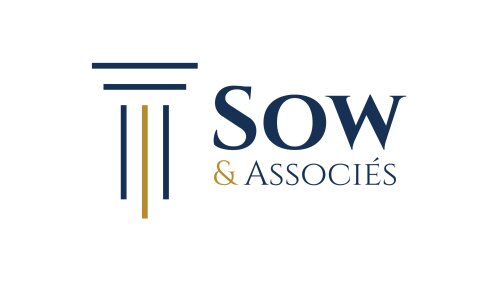Best Collaborative Law Lawyers in Senegal
Share your needs with us, get contacted by law firms.
Free. Takes 2 min.
Free Guide to Hiring a Family Lawyer
Or refine your search by selecting a city:
List of the best lawyers in Senegal
About Collaborative Law in Senegal:
Collaborative Law in Senegal is a form of alternative dispute resolution where parties work together with their lawyers to come to a mutually beneficial agreement. It is a non-adversarial approach to resolving conflicts and is often used in family law cases, such as divorce and child custody.
Why You May Need a Lawyer:
You may need a lawyer in Collaborative Law to ensure your rights and interests are protected during the negotiation process. A lawyer can provide legal advice, help with drafting agreements, and represent you in discussions with the other party.
Local Laws Overview:
In Senegal, Collaborative Law is not a widely recognized practice and may not have specific regulations or guidelines. However, the principles of collaboration and negotiation can still be utilized in legal proceedings to reach amicable solutions.
Frequently Asked Questions:
1. What is the role of a lawyer in Collaborative Law?
A lawyer in Collaborative Law acts as a legal advisor, providing guidance and representation during negotiations.
2. How is Collaborative Law different from traditional litigation?
Collaborative Law focuses on cooperation and reaching mutually beneficial agreements, while litigation involves a court process and adversarial legal proceedings.
3. Can Collaborative Law be used in commercial disputes?
Yes, Collaborative Law can be used in a variety of legal matters, including commercial disputes, as long as both parties are willing to work together.
4. What happens if an agreement cannot be reached in Collaborative Law?
If an agreement cannot be reached, the parties may need to pursue other legal options, such as mediation or litigation.
5. Is Collaborative Law legally binding in Senegal?
While Collaborative Law may not have a specific legal framework in Senegal, any agreements reached through collaboration can be legally binding if properly drafted and executed.
6. How long does the Collaborative Law process typically take?
The length of the Collaborative Law process can vary depending on the complexity of the issues involved and the willingness of the parties to negotiate.
7. Are lawyers required in Collaborative Law proceedings?
While lawyers are not required in Collaborative Law, having legal representation can help ensure your rights are protected and your interests are represented.
8. Can I switch from Collaborative Law to traditional litigation if needed?
Yes, parties can choose to switch to traditional litigation if they are unable to reach an agreement through Collaborative Law.
9. How can I find a Collaborative Law lawyer in Senegal?
You can search for Collaborative Law lawyers through legal directories, bar associations, or by asking for recommendations from other legal professionals.
10. What are the benefits of Collaborative Law over litigation?
Collaborative Law can be less time-consuming, less costly, and less stressful than traditional litigation, while also promoting cooperation and communication between parties.
Additional Resources:
For more information on Collaborative Law in Senegal, you can contact the Senegal Bar Association or seek guidance from legal professionals specializing in alternative dispute resolution.
Next Steps:
If you are considering Collaborative Law for your legal matter, the next step is to consult with a lawyer who has experience in this area. They can help you understand your options and guide you through the collaborative process.
Lawzana helps you find the best lawyers and law firms in Senegal through a curated and pre-screened list of qualified legal professionals. Our platform offers rankings and detailed profiles of attorneys and law firms, allowing you to compare based on practice areas, including Collaborative Law, experience, and client feedback.
Each profile includes a description of the firm's areas of practice, client reviews, team members and partners, year of establishment, spoken languages, office locations, contact information, social media presence, and any published articles or resources. Most firms on our platform speak English and are experienced in both local and international legal matters.
Get a quote from top-rated law firms in Senegal — quickly, securely, and without unnecessary hassle.
Disclaimer:
The information provided on this page is for general informational purposes only and does not constitute legal advice. While we strive to ensure the accuracy and relevance of the content, legal information may change over time, and interpretations of the law can vary. You should always consult with a qualified legal professional for advice specific to your situation.
We disclaim all liability for actions taken or not taken based on the content of this page. If you believe any information is incorrect or outdated, please contact us, and we will review and update it where appropriate.
Browse collaborative law law firms by city in Senegal
Refine your search by selecting a city.









